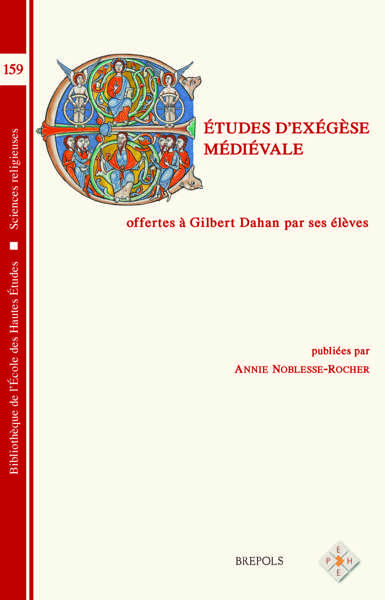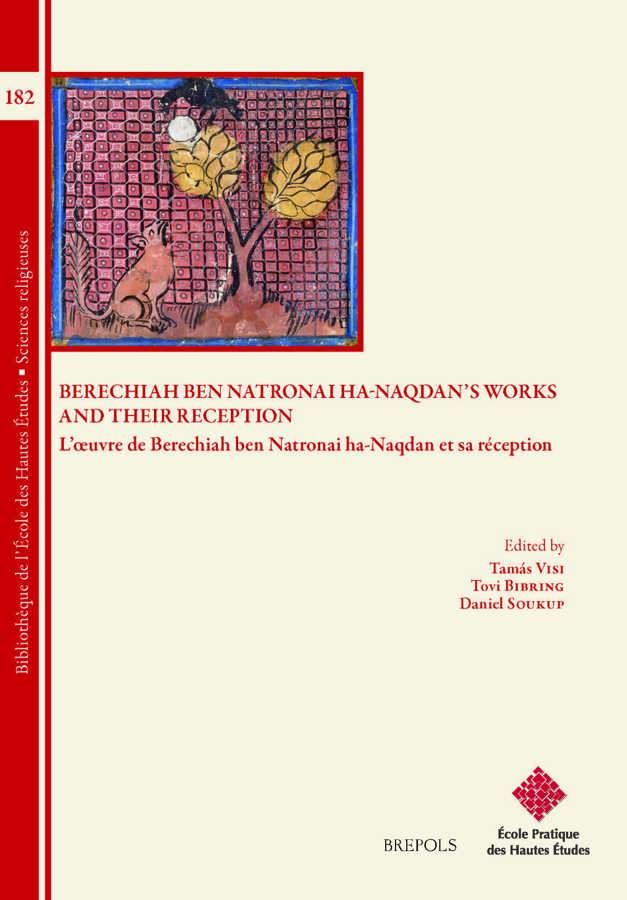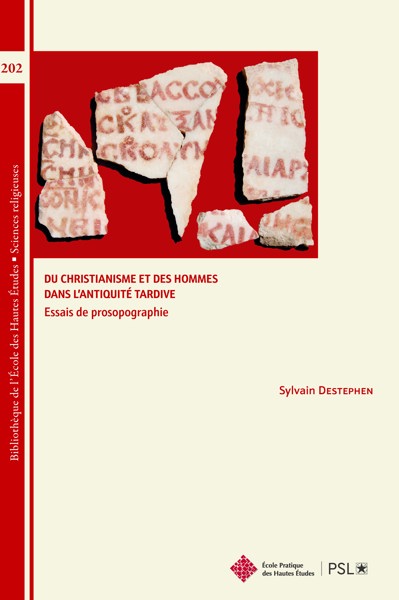
Berechiah ben Natronai ha-Naqdan’s Works and Their Reception
L’oeuvre de Berechiah ben Natronai ha-Naqdan et sa réception
Tamás Visi, Tovi Bibring, Daniel Soukup (eds)
- Pages: 254 p.
- Size:156 x 234 mm
- Language(s):English, French
- Publication Year:2019
- € 70,00 EXCL. VAT RETAIL PRICE
- ISBN: 978-2-503-58365-5
- Paperback
- Available
- € 70,00 EXCL. VAT RETAIL PRICE
- ISBN: 978-2-503-58366-2
- E-book
- Available
Tamás Visi is an associate professor at the Kurt and Ursula Schubert Center for Jewish Studies, Palacky University, Olomouc and researcher at the Thomas-Institut, University of Cologne.
Tovi Bibring is a medievalist in the Department of French Culture in Bar-Ilan University.
Daniel Soukup is an assistant professor at the Kurt and Ursula Schubert Center for Jewish Studies, Palacky University, Olomouc and researcher at the Institute for Czech Literature of the Czech Academy of Sciences, Prague.
Berechiah ben Natronai ha-Naqdan, the illustrious Jewish scholar from Rouen,was probably the most prolific writer among the twelfth century Jewish authors in France. While all his creations are truly remarkable, two are the focus of this book: Mishlei Shu'alim, the largest compilation of Aesopian fables ever written in Hebrew, and Dodi ve-Nekhdi, a translation of Adelard of Bath's Questiones Naturales. The ten studies gathered here, written by internationally renowned scholars from Europe, Israel and the United States, explore the richness and uniqueness of these two major books, as well as their sources and their reception. A number of these studies accentuate specific themes and motives, some of which are discussed here for the first time. Other studies relate to the linguistic particularities, examined here in a novel and original manner. We also present innovative studies on the Hebrew version of Questiones Naturales, and use vibrant examples to demonstrate the translations, adaptations and uses of Berechiah's works from the Middle Ages until the modern area. This volume is the result of an international workshop that was held in the Center for Jewish Studies in Palacky University in May 2015.
Preface and Acknowledgements
Tamás Visi, Introduction. Berechiah ben Natronai ha-Naqdan and His Works
Tovi Bibring, Juif ou Français ? Berechiah ha-Naqdan au carrefour culturel : nouvelles considérations sur « Souris et Grenouille »
Part I. The Mishlei Shuʻalim
Revital Refael-Vivante, Charity as a Value and a Norm in Mishlei Shuʻalim by Rabbi Berechiah ha-Naqdan
Cyril aslanov, Can the Language of Mishlei Shuʻalim Give us a Clue about Berechiah ha-Naqdan’s Geographical Origin?
Part II. The Scientific Works
Tamás Visi, Science and Religion in Ashkenaz. Berechiah ben Natronai ha-Naqdan and his Predecessors
Hagar Kahana-smilansky, The Sources of Berechiah’s Book of Questions, Illustrated by the Questions on Ocular Vision and ‘Melancholic’ Animals
Part III. Berechiah’s Reception in the Middle Ages
Rella Kushelevsky, Berechiah’s Imprint on Sefer ha-ma‘asim: The Reception of Mishlei Shuʻalim
Andreas lehnardt, “I Saw in a Town Violence and Strife” – An Unknown Ashkenazic Maqama Found in a Binding Fragment
Part IV. Berechiah’s Reception in the Early Modern and Modern Period
Magdaléna Jánošíková, Fox Fables in the Early Modern Era. The Fables that Ashkenaz Read in Hebrew
Daniel Soukup, Melchior Hanel (1627-1689) and his Latin Translation of Mishlei Shuʻalim in the Context of the Respublica Litteraria
Ellen Frankel, Twice-Translated Tales. Creating Contemporary English Versions of the Fox Fables of Berechiah ben Natronai Ha-Naqdan
Abstracts in French




